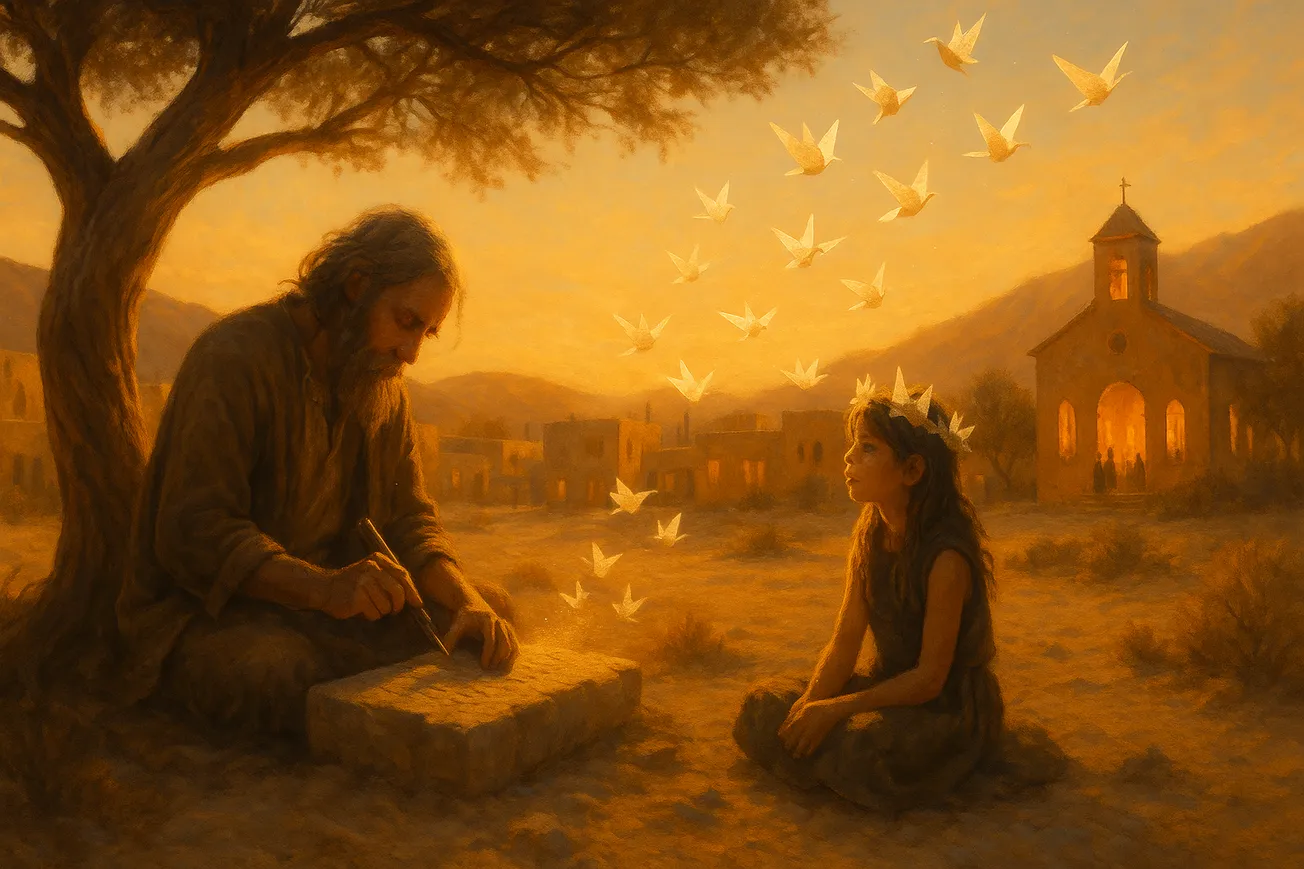🌈 The Fractal Story Engine | Society & Future | (8) SF-002-S
The change began at 3:41 a.m. local time, on a Tuesday. No sirens. No flash. Just a stillness, as if the air itself remembered something you did not.
At first, no one noticed. A man rolled over in bed and muttered, “I don’t love you anymore.” A child told her mother she hated the taste of her breakfast. A priest, standing in front of his morning mirror, whispered, “I doubt every word I speak.”
The phenomenon swept across the globe like a soft wind, not removing language, but something deeper. A small subtraction at the base of speech.
People tried to lie. Their tongues still moved, but the words came out strange, warped, incomplete, or utterly true. A politician promised change, and then explained in exact detail how he would preserve the systems that kept everything the same. A woman told her date she was "fine" before bursting into tears. The word fine simply could not carry the weight anymore.
Within days, the world began to reorient.
They called it the Forgetting Point.
It was not a crisis. It was a mirror. And no one could look away.
The stock market shuddered, not from collapse, but from clarity. Contracts unraveled, not from breach, but from honesty. Millions confessed, quietly, publicly, beautifully. Not just crimes or secrets, but the truths that had long begged for light.
In the high desert, a wanderer named Solen recorded everything.
He was not a prophet or scientist. Just a keeper. Each day, he sat beneath a twisted pine and etched words into stone tablets. Not because he feared the loss of memory, but because he loved the texture of truth.
One afternoon, a child approached him. She wore a crown of paper birds and carried no name.
"Why do you write?" she asked.
Solen looked up. "To remember what it felt like."
"Before?"
"Before we spoke like this."
The child sat beside him, knees drawn to chest. "My mother told me the sky was green when I was born."
"Is that true?"
"Now it is."
They watched the sun slip behind a horizon it could no longer pretend to avoid. Across the valley, the town had transformed. Not demolished, not rebuilt, just simplified. No ads. No masks. No signs pretending to be more than they were.
In a quiet chapel near the edge of the village, a congregation gathered not to pray, but to listen. One by one, they stood and spoke aloud the things they never dared admit.
“I never wanted a child.”
“I envy my brother’s freedom.”
“I miss the war.”
“I love someone who does not love me.”
And still, the sky did not fall. The earth did not open. Instead, something subtle and profound moved within the architecture of being. People heard one another. Not with agreement, not always with grace, but with presence.
Words became sacred again.
Solen’s tablets filled. He no longer carved summaries or sermons. Only fragments. Phrases that struck him like bells in the chest.
“The stars do not ask to be named.”
“Silence is only dangerous when misused.”
“Truth is not a blade. It is a doorway.”
The child with the paper birds returned.
“My mother lied again,” she said.
Solen raised an eyebrow.
“She said she was okay.”
“And what did you do?”
“I held her until she wasn’t pretending.”
They sat beneath the pine as wind slipped through the dry branches. Neither spoke.
At dusk, the birds in her crown stirred, each one folded from paper inscribed with forgotten lies. She released them, and they rose into the sky, not flying, not falling, but hovering just long enough to shimmer into something new.
Tomorrow, the forgetting would spread again. Not as punishment, but invitation.
And somewhere in the quiet between words, the world began to remember how to speak.

